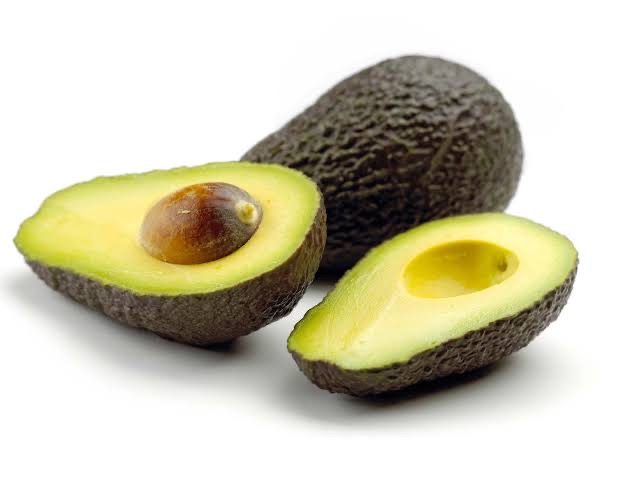The avocado, often hailed as a superfood, has become a beloved ingredient in kitchens worldwide. Known for its creamy texture and rich flavor, this fruit, botanically classified as a berry, is packed with nutrients and health benefits that make it a staple in healthy diets.
Origins and History
Avocados (Persea americana) are native to Central and South America, with evidence of cultivation dating back to 5000 B.C. The Aztecs and Mayans prized avocados for their nourishing qualities, and the fruit was an essential part of their diets. The word “avocado” derives from the Aztec word “ahuacatl,” which means “testicle,” likely a reference to the fruit’s shape and perhaps its perceived aphrodisiac qualities.
Spanish explorers introduced avocados to Europe in the 16th century, and from there, they spread to other parts of the world. Today, avocados are grown in tropical and Mediterranean climates, with Mexico being the largest producer.
Nutritional Profile

Avocados are often referred to as a nutrient-dense food, packed with a wide array of vitamins and minerals:
– Calories: About 234 per medium avocado
– Healthy Fats: Approximately 21 grams, primarily monounsaturated fat
– Fiber: Around 10 grams
– It has Vitamin K: 26% of the Recommended Daily Allowance (RDA)
– Vitamin C: 17% of the RDA
– Vitamin E: 10% of the RDA
– Folate: 20% of the RDA
– Potassium: 14% of the RDA
Avocados are also rich in antioxidants, including lutein and zeaxanthin, which are beneficial for eye health.
Health Benefits
The health benefits of avocados are extensive and well-supported by scientific research:
1. Heart Health: Avocados are high in monounsaturated fats, particularly oleic acid, which can help reduce bad LDL cholesterol levels while maintaining good HDL cholesterol. This balance is crucial for heart health and can lower the risk of cardiovascular diseases.
2. Nutrient Absorption: The healthy fats in avocados aid in the absorption of fat-soluble vitamins such as A, D, E, and K. Adding avocado to salads or salsas can enhance the uptake of these nutrients from other vegetables.
3. Digestive Health: With their high fiber content, avocados promote healthy digestion and regular bowel movements. Fiber is also important for maintaining a healthy gut microbiome.
4. Anti-Inflammatory Properties: Avocados contain phytochemicals and carotenoids that have anti-inflammatory effects, which can help reduce the risk of chronic diseases like arthritis and other inflammatory conditions.
5. Weight Management: Despite being calorie-dense, avocados can be beneficial for weight management. The combination of healthy fats and fiber helps increase satiety, making you feel full longer and reducing overall calorie intake.
6. Blood Sugar Regulation: The low carbohydrate content and high fiber levels in avocados can help stabilize blood sugar levels, making them a suitable food choice for people with diabetes or those looking to manage their blood sugar.
7. Eye Health: Avocados are a good source of lutein and zeaxanthin, antioxidants that are important for eye health. These compounds help protect against age-related macular degeneration and cataracts.
8. Skin and Hair Health: The vitamins and healthy fats in avocados nourish the skin and hair. Vitamin E, in particular, helps protect skin from oxidative damage and keeps it hydrated.
Culinary Uses

Avocados are incredibly versatile in the kitchen and can be used in both savory and sweet dishes:
– Guacamole: Perhaps the most famous avocado dish, guacamole is a staple in Mexican cuisine. Made from mashed avocados, lime juice, salt, and various add-ins like tomatoes, onions, and cilantro, it’s a beloved dip worldwide.
– Salads: Sliced or diced avocados add a creamy texture and rich flavor to salads.
– Smoothies: Adding avocado to smoothies enhances their creaminess and boosts their nutritional value.
– Sandwiches and Toasts: Avocado toast has become a modern breakfast favorite, topped with a variety of ingredients like eggs, tomatoes, or smoked salmon.
– Desserts: Avocados can be used in baking and desserts, adding moisture and richness to items like brownies, mousse, and even ice cream.
How to Select and Store
When choosing avocados, look for ones that are firm but yield to gentle pressure when ripe. Avoid avocados with dark blemishes or overly soft spots. If you need to ripen avocados, place them in a paper bag with a banana or apple, as these fruits emit ethylene gas that speeds up ripening.
Once ripe, avocados can be stored in the refrigerator for a few days. If you use only part of an avocado, keep the pit in the unused portion and sprinkle it with lemon or lime juice to prevent browning before covering it tightly and refrigerating.
Environmental Impact
Avocado farming has come under scrutiny due to its environmental impact. The fruit requires a significant amount of water to grow, and the increasing global demand has led to deforestation and other ecological concerns in major production areas like Mexico and California. Sustainable farming practices and mindful consumption are crucial to mitigate these impacts.
Avocados are more than just a trendy food item; they are a nutritional powerhouse with a host of health benefits. Their versatility in the kitchen and rich, creamy texture make them a favorite among chefs and home cooks alike. By incorporating avocados into a balanced diet, you can enjoy not only their delicious flavor but also their numerous health advantages. However, it’s important to be aware of their environmental footprint and make sustainable choices when possible.